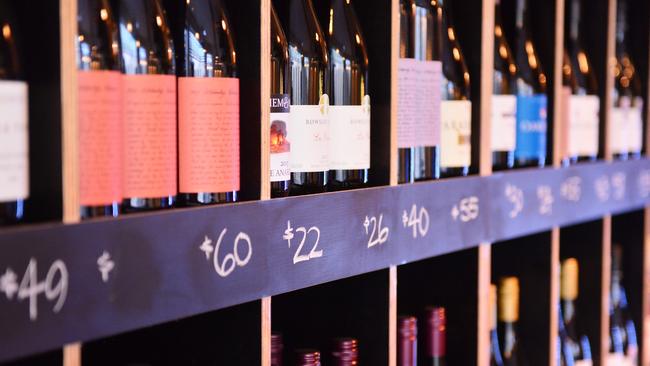Bitcoin technology used to block fine wine fraud
London-based start-up Everledger has teamed up with IBM to transform the way fine wines are authenticated.

A London-based start-up is using blockchain technology of the kind that underpins the crypto-currency bitcoin to tackle the problem of fraud and theft in the market for fine wines.
Everledger has teamed up with IBM to transform the way fine wines are authenticated by replacing paper records with a tamper-proof digital ledger that follows each bottle down the supply chain and every time it changes hands.
“In the fine wine industry there’s a lot of fraud. People take an original bottle and refill it or they fake new bottles. This poses a threat to sales and to people’s reputation,” Leoni Runge, head of fine wine at Everledger, said.
“Collectors don’t want to open a bottle to prove it’s real, so we have to find another way. Blockchain enables us to secure the identity of an asset in a way we haven’t been able to before.”
Recent fraud cases in the fine wine industry have exposed the vulnerabilities of the market when it comes to authenticating the origin of expensive wine. With the most expensive bottles changing hands for tens or even hundreds of thousands of pounds, the stakes are high. Rudy Kurniawan, the most notorious wine faker of modern times, was jailed for 10 years for fraud by an American court in 2014, after he was found to have been buying large stocks of burgundy and relabelling them as more expensive wines, such as Domaine de la Romanee-Conti.
Everledger uses blockchain technology developed in conjunction with IBM to capture more than 90 data points on each bottle of fine wine. It stores this data on a tag that is resistant to counterfeiting and can be attached to the capsule, or bottle top, on each bottle. The data points include information about the glass, the cork, the capsule, the label and the glue used on the label.
The digital proof contained on the tag is updated and travels with the wine each time it changes hands. The data is also stored on a public, chronologically ordered database, or blockchain, hosted on a distributed network of thousands of computers, where information cannot be changed or deleted. At every stage of the journey, buyers or sellers can link to the bottle’s “digital identity” to authenticate it.
“We create a digital identity and chain of custody for each bottle,” Leanne Kemp, founder and chief executive of Everledger, said. “The capsule has a deactivation alert that can tell the system if it has been broken into.”
Everledger is working with Maureen Downey, a fine wine expert, of Chai Consulting in California, and has certified and secured wine in her vault.
Founded in April 2015 with help from a tech start-ups accelerator program from British lender Barclays, Everledger is working to prevent fraud in the diamond industry with a similar blockchain-based certification system that tracks the movement of diamonds across the diamond supply chain and when they are changing owners. It has 1.25 million diamonds digitised and embedded into the blockchain and has all the major certificate houses signed up, as well as four big London insurance companies.
The company has offices in London, New York and Australia. Ms Kemp said that it hopes to expand its business into the world of fine art.
In New York, Greats, a footwear manufacturer, is understood to be using blockchain technology to create smart tags that can track their product to the factory, to guard against counterfeiting.
The Times


